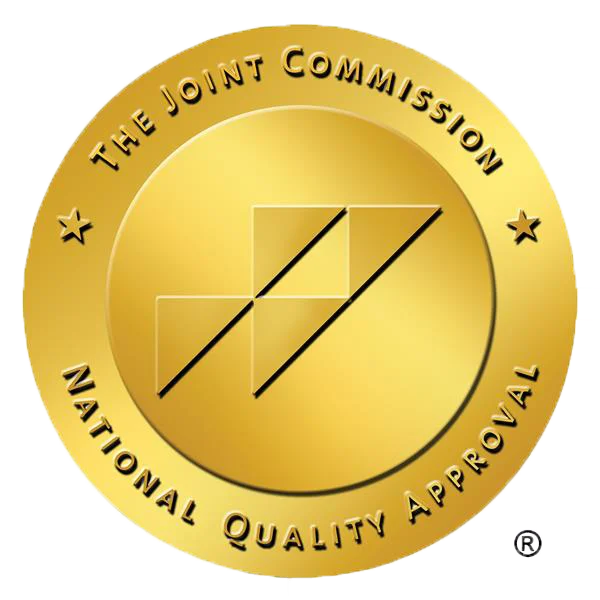Healing starts with being seen, heard, and understood. Individual therapy at Olympia Grove Recovery in Euclid, Ohio, offers a safe and supportive space where you can explore your thoughts, emotions, and experiences with the guidance of a licensed therapist. Whether you are working through anxiety, depression, trauma, or the challenges that come with recovery, therapy helps you build awareness and learn new coping skills. It also helps you reconnect with your sense of purpose.
Our compassionate approach is grounded in evidence-based methods that promote both immediate relief and long-term growth. In therapy, your story matters, and together, we explore how to shape the next chapter of your healing journey.

What is individual therapy, and how does it work?
Individual therapy, sometimes called one-on-one counseling, is a confidential setting where you meet privately with a licensed therapist to explore challenges, emotions, and goals. Each session is tailored to your unique needs, helping you identify patterns, process experiences, and create practical strategies for change.
At Olympia Grove Recovery, individual therapy is a key part of addiction treatment and mental health recovery. It provides a space for open, judgment-free conversations that promote healing and personal growth.
Core goals of individual therapy include:
- Understanding and managing emotions in healthy ways
- Identifying negative thought patterns and developing new coping skills
- Building self-awareness, confidence, and resilience
- Strengthening motivation for recovery and personal development
Through consistent sessions, clients gain insight into their behaviors and learn how to create lasting change within themselves and in their relationships with others.
Who does individual therapy help: Common concerns we treat that co-occur with addiction
Addiction and mental health often overlap. Individual therapy at Olympia Grove Recovery addresses both the symptoms of substance use and the emotional challenges that accompany it. Our licensed therapists help clients work through issues that can make recovery more difficult, supporting the whole person: mind, body, and spirit.
Anxiety treatment and panic support
Therapy helps clients recognize triggers that fuel anxiety and panic attacks while developing tools to manage symptoms. Breathing exercises, grounding techniques, and cognitive reframing can reduce physical tension and racing thoughts.
Depression treatment and mood stabilization
Therapists guide clients in identifying underlying causes of sadness, hopelessness, or loss of motivation. Treatment focuses on small, achievable steps that rebuild confidence and encourage connection, purpose, and self-compassion.
Stress management and burnout prevention
In recovery, everyday stress can feel overwhelming. Individual therapy helps you identify stressors, improve time management, and practice mindfulness strategies that restore calm and balance.
Trauma therapy and PTSD recovery
Unresolved trauma can make recovery feel impossible. Trauma-informed therapy creates a space where clients can process painful experiences safely and begin to release the emotional weight of the past.
Life transitions, grief, and self-esteem
Major life changes, grief, or identity struggles can create emotional distress. Individual therapy helps clients rebuild self-worth, establish healthy boundaries, and find meaning in life after loss or change.
Evidence-based therapy approaches we use
The therapists at Olympia Grove Recovery use evidence-based methods proven to support both addiction recovery and mental wellness. Each approach is chosen based on your goals, experiences, and comfort level.
Cognitive-behavioral therapy (CBT)
CBT helps clients identify unhelpful thought patterns and replace them with more realistic and empowering ones. It teaches how thoughts, feelings, and behaviors are connected, giving you the tools to make healthier choices and respond to challenges more effectively.
Dialectical behavior therapy (DBT)
DBT emphasizes emotional regulation, mindfulness, and interpersonal effectiveness. Clients learn how to tolerate distress, improve communication, and maintain balance during emotionally intense moments.
Reality therapy
Reality therapy focuses on personal responsibility and the power of choice, helping clients take ownership of their recovery and learn how to meet their needs without relying on substances.
Motivational interviewing (MI)
MI is a client-centered approach that helps strengthen motivation for recovery. Therapists guide clients in exploring their values and goals, fostering confidence in their ability to make lasting change.
Therapy-supported rehab programs right here in Ohio.
What to expect in your first session
Starting therapy can bring up a mix of emotions, from hope and relief to uncertainty. Your first session is a welcoming space designed to help you feel comfortable, safe, and understood from the very beginning.
Confidential assessment and collaborative goal-setting
Your therapist begins with a private conversation about your background, current challenges, and goals for therapy. Together, you identify priorities and set realistic, meaningful goals for your sessions.
Personalized treatment plan and session frequency
Based on your needs, the therapist will recommend a treatment plan that may include weekly sessions, skill-building exercises, and integration with other treatment programs such as medical detox or group therapy.
Measuring progress and adjusting care
Therapy is an evolving process. As you grow and your needs change, your therapist will adjust the approach, techniques, or frequency of sessions to align with your progress and goals.
Licensed therapists you can trust
At Olympia Grove Recovery, our licensed therapists bring experience, empathy, and professionalism to every session. Each clinician is trained in evidence-based practices and committed to providing respectful, ethical, and person-centered care.
Qualifications, licenses, and ongoing training
Our team includes licensed professional counselors, social workers, and clinical therapists who participate in ongoing education to stay current with best practices in mental health and addiction care.
Specialties by condition and population
Therapists specialize in treating a range of concerns, including trauma, anxiety, depression, and co-occurring mental health conditions. Each clinician tailors therapy to meet the unique needs of adults in recovery.
Commitment to outcomes, ethics, and informed consent
All therapeutic relationships at Olympia Grove Recovery are built on transparency, respect, and informed consent. Clients are encouraged to ask questions, provide feedback, and take an active role in their treatment journey.
Individual therapy vs. family and group therapy
While individual therapy focuses on personal insight and growth, other therapy formats can complement this process. Olympia Grove Recovery often integrates family and group therapy to strengthen recovery and relationships.
When to choose individual therapy
Individual therapy is recommended when you need focused attention on personal struggles, trauma, or mental health symptoms. It's also ideal for clients who prefer privacy or are just beginning their treatment journey.
Coordinating care across family therapy and group therapy
Individual therapy can be combined with family therapy or group sessions for comprehensive healing. These settings allow clients to apply new skills, receive peer support, and rebuild trust with loved ones in a guided, therapeutic environment.
Our counseling services
Therapy at Olympia Grove Recovery is not one-size-fits-all. We provide counseling that adapts to your pace, background, and goals for recovery.
Client-centered, culturally responsive care
Every session is guided by empathy and cultural sensitivity. Throughout the therapeutic process, we honor your unique story, experiences, and values.
Short-term symptom relief and long-term growth
Therapy can provide immediate relief from distress while also addressing deeper emotional patterns that contribute to long-term recovery. As therapy continues, clients often notice improvements in mood, self-awareness, and relationships.
Collaborative care with primary care and psychiatry when needed
Our team coordinates care with medical and psychiatric providers when necessary, particularly for clients in co-occurring disorders treatment. This collaboration helps support all aspects of your health and promotes stability throughout recovery.
Discover our whole-person addiction treatment.
How to get started
Individual therapy is an essential part of each client’s addiction treatment plan at Olympia Grove Recovery. Every person in our program participates in one-on-one sessions that support emotional healing, strengthen coping skills, and build a foundation for long-term recovery. Depending on their clinical needs and overall treatment goals, clients typically spend one to two hours per week in individual therapy.
How to prepare and questions to ask your therapist
Before your first session, consider what you want to focus on, such as managing emotions, improving relationships, or navigating early recovery challenges. You are encouraged to ask questions like:
- What therapy approaches do you use?
- How often will we meet?
- How will therapy fit into my overall treatment plan?
- How will we track progress together?
Flexible scheduling and continued support
Therapy sessions are scheduled to align with your addiction treatment program and daily routine. If you need to reschedule, our team provides flexible options to help you stay consistent in your care. From the first session onward, your therapist works closely with you to create a plan supporting immediate healing and long-term recovery.
FAQs about individual therapy
The length of therapy depends on your goals and progress. Some clients find relief after a few months, while others continue for a year or longer for ongoing support. Your therapist will help you decide what timeline works best for you.
You may notice gradual improvements such as reduced anxiety, better mood, or healthier relationships. Your therapist will check in regularly to discuss your progress and make adjustments as needed.
The terms are often used interchangeably, but “therapy” typically refers to structured mental health treatment provided by licensed clinicians, while “counseling” can also describe short-term support for specific challenges. Both focus on helping you feel better and achieve meaningful change.
Start your healing journey at Olympia Grove Recovery
You do not have to carry the weight of your struggles alone. The licensed therapists at Olympia Grove Recovery are here to help you uncover your strength, understand your emotions, and move forward with clarity and confidence. Therapy is more than a conversation. It's a partnership in healing and growth.
Call 216.438.8351 today or use our contact form to connect with our admissions team. Begin your healing journey at Olympia Grove Recovery in Euclid, Ohio, serving individuals and families across the Greater Cleveland area.
